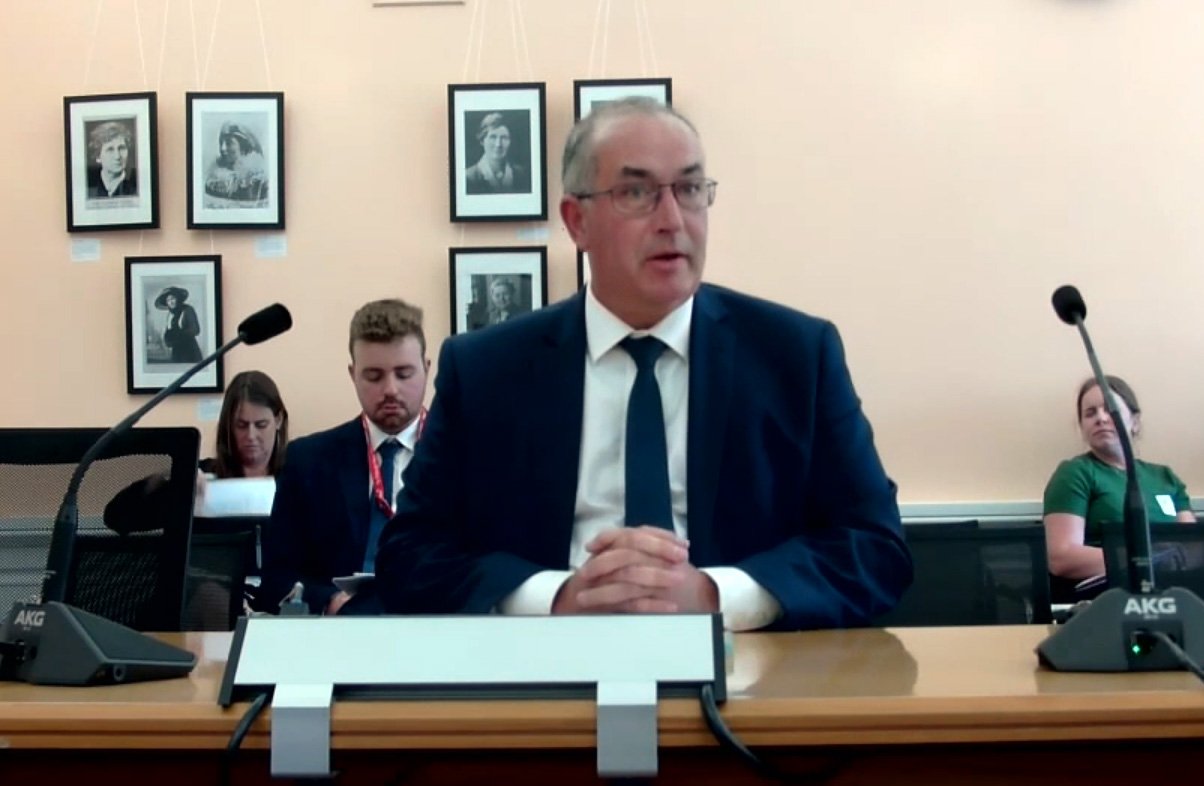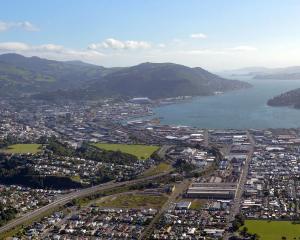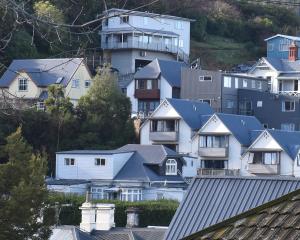
MPs, including Green Taieri list MP Scott Willis, were — somewhat surprisingly — hearing submitters on the Fair Digital News Bargaining Bill.
I say "surprising" because this Bill began its life during the previous government, under the auspices of then minister for broadcasting and media Willie Jackson. Both National and Act New Zealand voted against it, so many would have expected that the Bill’s life expectancy would have been very short after the change of government.

However, she had given herself some wiggle room, saying that National had always said that if it could be clearly shown that digital platforms were breaching intellectual property and copyright and making money from news content from New Zealand’s media, they should pay for it.
"I have yet to be presented with the evidence that this is in fact happening," she said back in August.
This week chief executives and senior editors of the nation’s media companies, including Allied Press chief executive Grant McKenzie, showed up at Parliament with evidence aplenty of that.
But before we get to that, what does the Bill aim to do? In simple terms, create a "fair bargaining environment" whereby the likes of Google and Facebook owner Meta recompense media companies for use of their product.
If you are reading this column in the newspaper, or via a digital subscription to the ODT, thank you, you have paid for it and helped myself and my esteemed colleagues put food on the table for our families.
But, for example, if you cut and pasted it on to your Facebook feed, none of the web traffic, and its associated subscription or advertising income, comes the way of the ODT. And the more people who read your pirated version, the less inclined those people might be to pay for it, knowing that they can read a boosted version for free.
So, while this column — or the other excellent articles our hardworking team produce — may have thousands of readers, thanks mainly to social media the number of people who actually paid to see it may be much smaller.
This gravely threatens the viability of local media, and Allied Press is as local as it gets, with newsrooms across the South Island. And local media matters: which other outlets were going to investigate the homelessness issue in Dunedin, organise a southern Farmer of the Year competition or find rats in local supermarkets, to give just three recent examples?
The argument of the media is that if other companies are going to drive traffic on their sites using our articles, they should pay for that.
"This is important for the producers of content and even more important for the producers of regional content," Mr McKenzie, who was also speaking on behalf of the Greymouth Evening Star, said.
"We do not have the luxury of scale. We have to be nimble, we have to produce outstanding content that our audience engages with ... however, we are not playing on a level playing field.
"They use our content to engage audiences, and sell advertising. They control the digital advertising market and also how our content is found digitally."
Speaking on behalf of the News Publishers Association (of which Allied Press is a member), public affairs director Andrew Holden said, put simply, the news media market was broken and needed to be fixed.
"We have two excellent examples in Australia and Canada: in Australia its around $200 million a year now and in Canada it’s $100m, from Google, and those deals were only done because they had legislation like this in place to bring those big tech companies to the table."
Big tech companies which were re-running material from the likes of the Gisborne Herald on the one year anniversary of Cyclone Gabrielle, but not necessarily funding the journalism which was putting those important stories into the public arena, he added.
And a slice of however many millions New Zealand media might be able to secure in negotiations with the aforementioned tech companies would be existential for those small publishers.
Ms Lee later said that she would consider the select committee report before deciding what progress — or otherwise — it would make. It is a decision which will be anxiously awaited by many around here.
Luck of the draw
Southern MPs seem inordinately blessed by the Members’ Bill ballot, and another local came up trumps this week, when the Parole (Mandatory Completion of Rehabilitative Programmes) Amendment Bill, in the name of Act New Zealand Southland list MP Todd Stephenson, was the first disc drawn from Parliament’s famous biscuit tin.
The proposed law change would do exactly what the title says: make it compulsory for inmates to complete all programmes that they have been ordered to do before they can be paroled. Mr Stephenson’s Bill, given he is a government MP, has a more than decent shot of making it past first reading at a minimum, although as long-standing Act policy there is a chance it might also be adopted as a government Bill.
Identifying your motivation
Politicians are often asked why they ran for office ... this week, during the Water Services Acts Repeal Bill — third reading, Dunedin Labour MP Rachel Brooking revealed why she was in the House.
"I didn’t come to this House to talk about water pipes, and I’ve listened to a lot of maiden speeches in the last six years," her party’s local government spokesman Kieran McAnulty was declaiming, when Ms Brooking interjected "I did."
"And no-one else except Rachel Brooking has mentioned water pipes," Mr McAnulty continued on seamlessly, before questioning whether or not she really did.
... And, actually, a quick Hansard check reveals a whole section on drainage and stormwater management in Ms Brooking’s speech — so if there was any sort of wager on this, Mr McAnulty, a former TAB odds-setter, has lost.
Small world
Southern Say was out of commission last week for cataract surgery and the first person he — quite literally — bumped into afterwards was former National Dunedin list MP Michael Woodhouse, out enjoying the Dunedin summer rather than being stuck in Parliament.
And before anyone asks, both eyes were done — no jokes about one-eyed columnists, please.












